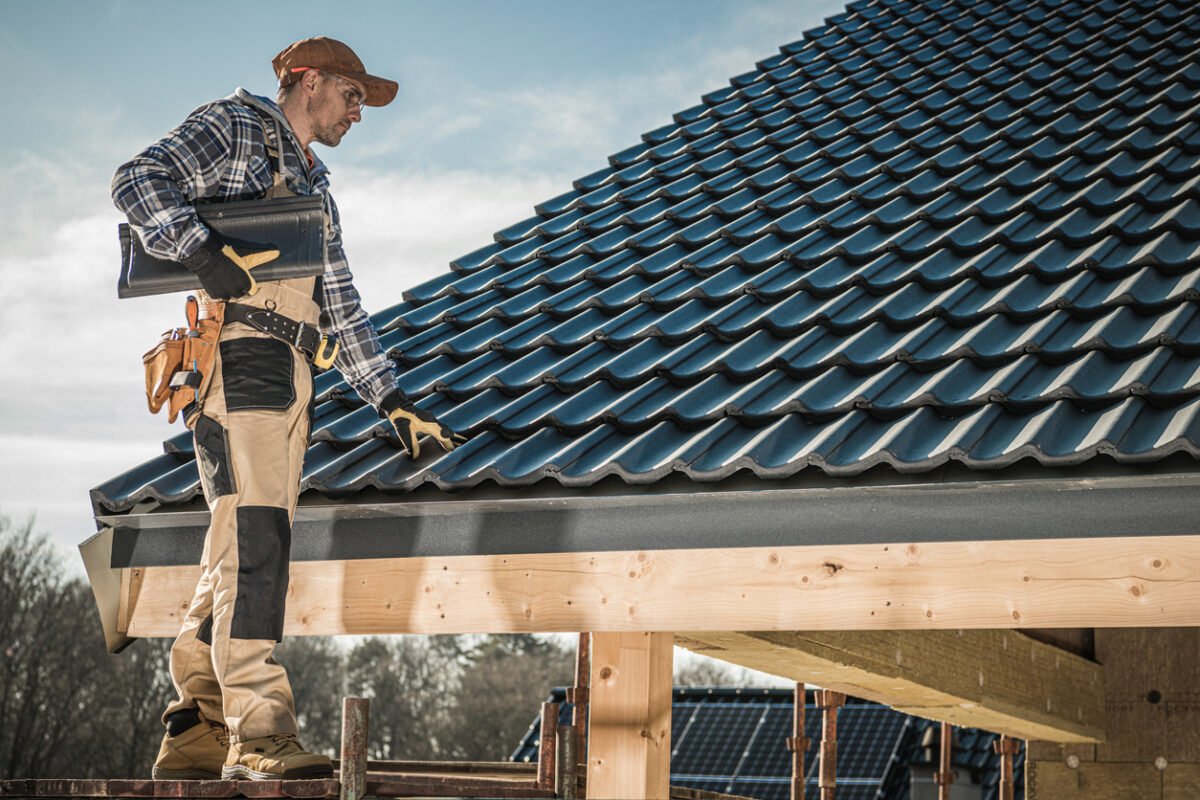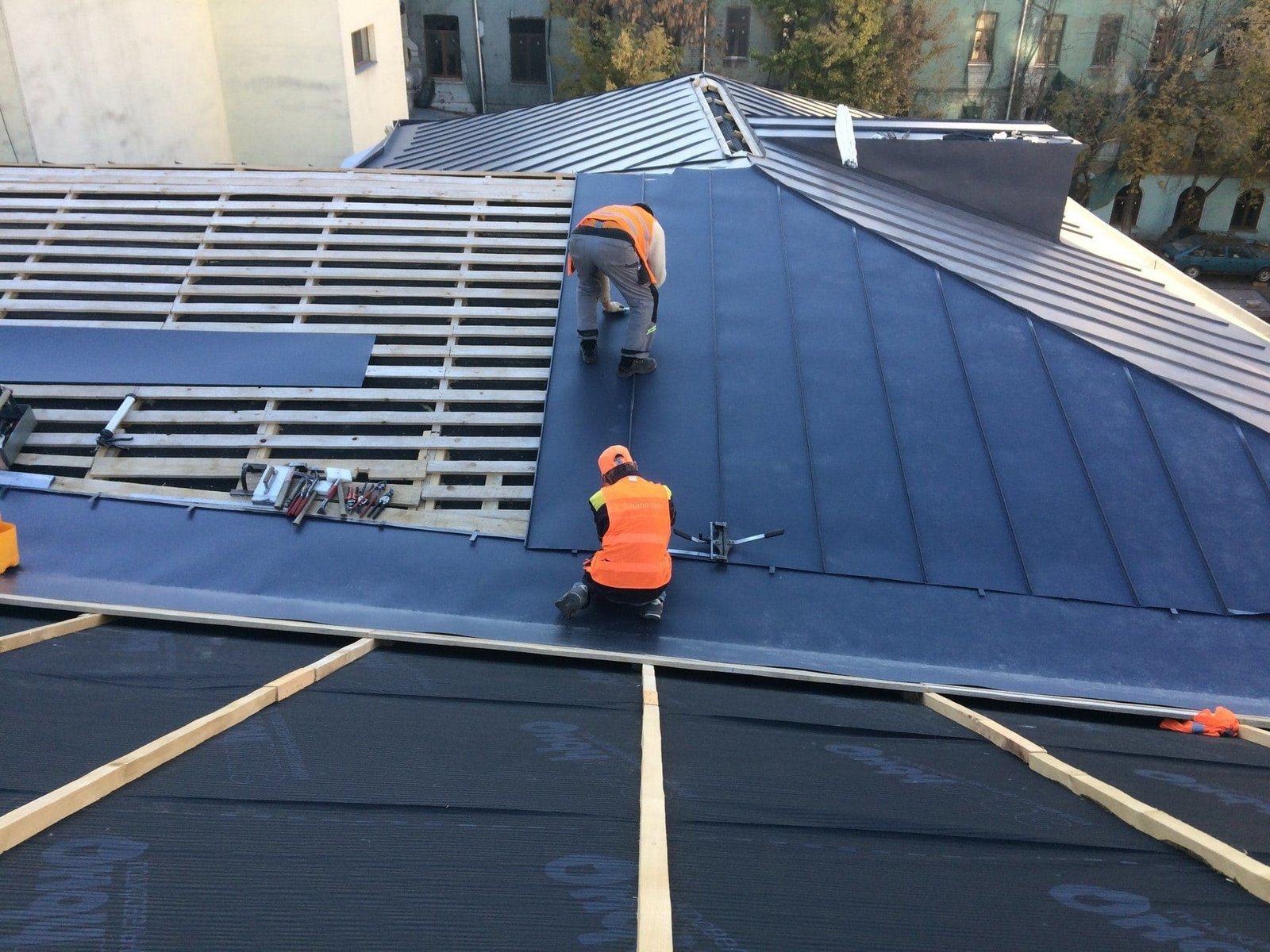A well-planned roofing project is essential for success, and for further guidance on managing roofing costs and budgeting, our breakdown on roofing expenses can provide valuable insights. Whether you’re dealing with minor repairs or a complete replacement, having a clear plan can help prevent unexpected costs and delays. In this blog post, we’ll explore the key considerations for planning a roofing project and how to ensure a smooth process from start to finish.
Initial Considerations for a Roofing Project

This section discusses the fundamental factors you should think about before starting any roofing project. It focuses on budgeting, assessing the scope of the project, and considering future needs to prevent unexpected surprises during the process.
Budgeting for Your Roofing Project
One of the most important steps in planning is determining your budget. This subsection will explain how to set a realistic budget based on material and labor costs, allowing for financial flexibility throughout the project.
Estimating Material Costs
Roofing material costs vary, and this part explains how to select the best materials for your budget and specific needs. The aim is to balance affordability with quality to avoid problems down the road.
Accounting for Labor and Additional Costs
Beyond materials, labor is a major cost. This subsection discusses what to expect when hiring contractors, as well as other potential costs such as permits, disposal fees, and structural repairs.
Choosing the Right Roofing Materials
Choosing the right material for your roof is crucial for both durability and aesthetics. In this section, you’ll learn about different types of roofing materials and how to pick the best one based on your home’s requirements, budget, and local climate.
Types of Roofing Materials
This subsection offers an overview of various roofing materials such as asphalt shingles, metal roofing, and more premium options like tile and slate. It explores the advantages and disadvantages of each material to help you make an informed choice.
Asphalt Shingles
Asphalt shingles are one of the most common and affordable roofing materials. This part explains their popularity and what makes them a great option for many homeowners.
Metal Roofing
Metal roofs are known for their durability and energy efficiency. This subsection covers the benefits of metal roofing and why it might be a worthwhile investment despite the higher upfront costs.
Tile and Slate Roofing
For those seeking long-term durability and aesthetic appeal, tile and slate roofing might be the answer. This part goes over the pros and cons of these materials, particularly their weight and cost considerations.
Energy Efficiency and Insulation
Roofing materials can affect your home’s energy efficiency. In this subsection, we discuss how the right roofing material combined with proper insulation can reduce your energy costs and make your home more comfortable.
Hiring a Roofing Contractor

A reliable contractor is key to the success of your project. This section will guide you through how to find and hire the best roofing contractor for your needs, while avoiding common pitfalls.
Importance of Professional Expertise
This subsection outlines the importance of hiring an experienced roofing contractor who is familiar with local building codes and able to handle any challenges that may arise during the project.
How to Find a Reliable Contractor
Finding a trustworthy contractor requires research. This part discusses how to research, read reviews, and interview potential contractors to ensure they are a good fit for your project.
Questions to Ask Your Contractor
When you meet with a contractor, knowing the right questions to ask is crucial. This subsection offers guidance on what to ask regarding timelines, previous projects, and potential obstacles.
Understanding Roofing Permits and Regulations
Every roofing project must comply with local building codes and regulations. This section focuses on the permits you’ll need and how to ensure your project is legal and safe.
Local Building Codes
Building codes regulate safety and materials in construction. In this subsection, we explain how these codes can influence your project and how a contractor can help ensure compliance.
Inspection Requirements
Some areas require specific inspections before and after a roofing project. This part explains how to schedule and prepare for these inspections to ensure a smooth project timeline.
Preparing for the Roofing Installation

This section covers what to expect in the days leading up to your roofing installation, including how to prepare your home and ensure the process is smooth and efficient.
Scheduling the Project
Timing is important when planning a roofing project. This subsection helps you understand the best seasons to schedule your installation and how to avoid common scheduling conflicts.
What to Expect During Installation
Roofing installation can be disruptive. This part explains what you and your family should expect, including the noise and possible adjustments to your routine during the installation period.
Protecting Your Home During the Project
Your home and landscaping need protection during roofing projects. This subsection offers tips on how to safeguard your home’s exterior and manage the mess that accompanies a roof installation.
Maintaining Communication with Your Contractor
Effective communication with your contractor can prevent misunderstandings and ensure the project stays on track. This section explains how to maintain regular communication and handle unexpected situations.
Progress Updates
Throughout the project, you’ll want regular updates. This subsection offers advice on how to keep the lines of communication open with your contractor, ensuring you stay informed at every stage.
Handling Unexpected Issues
Sometimes unforeseen issues arise. This part explains how to deal with unexpected problems that could delay the project, such as hidden structural damage, and how to address these issues with your contractor.
Post-Installation Care and Inspection
Once your roof is installed, the work isn’t over. This section covers the importance of post-installation inspections and tips for ongoing maintenance to ensure the longevity of your new roof.
Final Inspection
After installation, a final inspection is necessary to make sure everything was completed according to plan. This subsection explains what to look for during this final walk-through with your contractor.
Roof Maintenance Tips
Proper maintenance is key to prolonging your roof’s life. This part offers simple tips for regular upkeep, such as cleaning gutters, checking for damage, and scheduling professional inspections.
Roofing Talks A Source for Expert Advice

For more insights into planning your roofing project, Roofing Talks provides valuable information on maintaining and optimizing your roof’s performance. Stay informed on industry trends and best practices to ensure that your roofing project is a long-term success.
Closing Thoughts
Planning a roofing project requires careful consideration of your budget, materials, contractor, and local regulations. By taking the time to prepare and make informed decisions, you can avoid costly mistakes and ensure a roof that will protect your home for years to come. Maintaining clear communication with your contractor and staying proactive about inspections and maintenance will further contribute to the long-term success of your roofing project.



